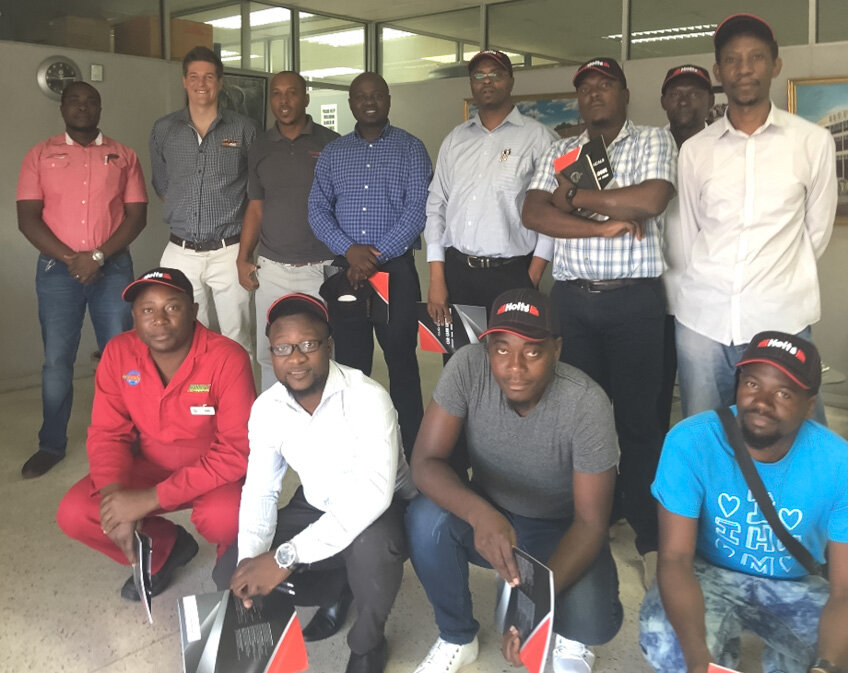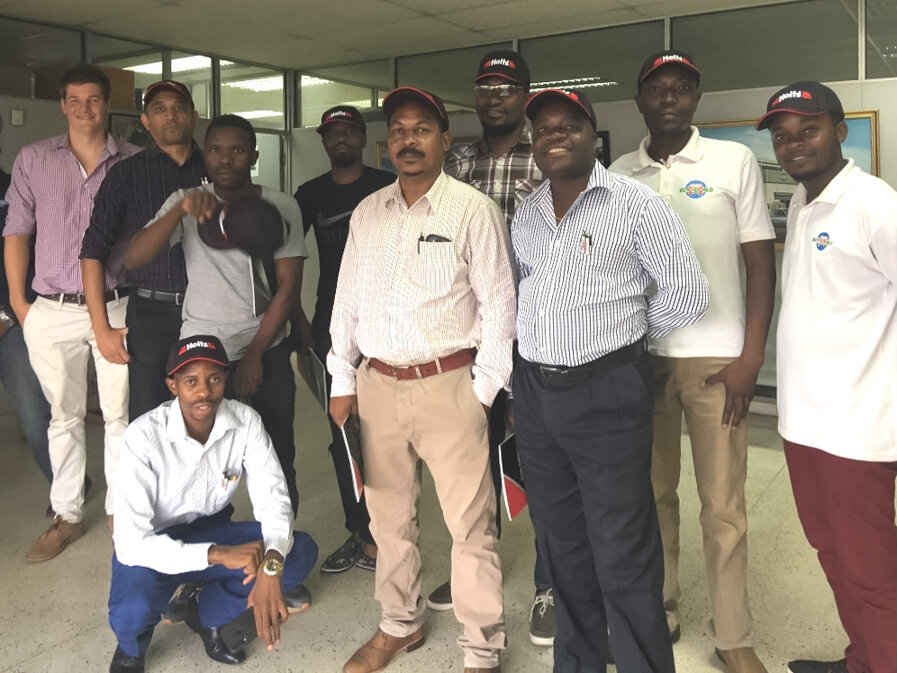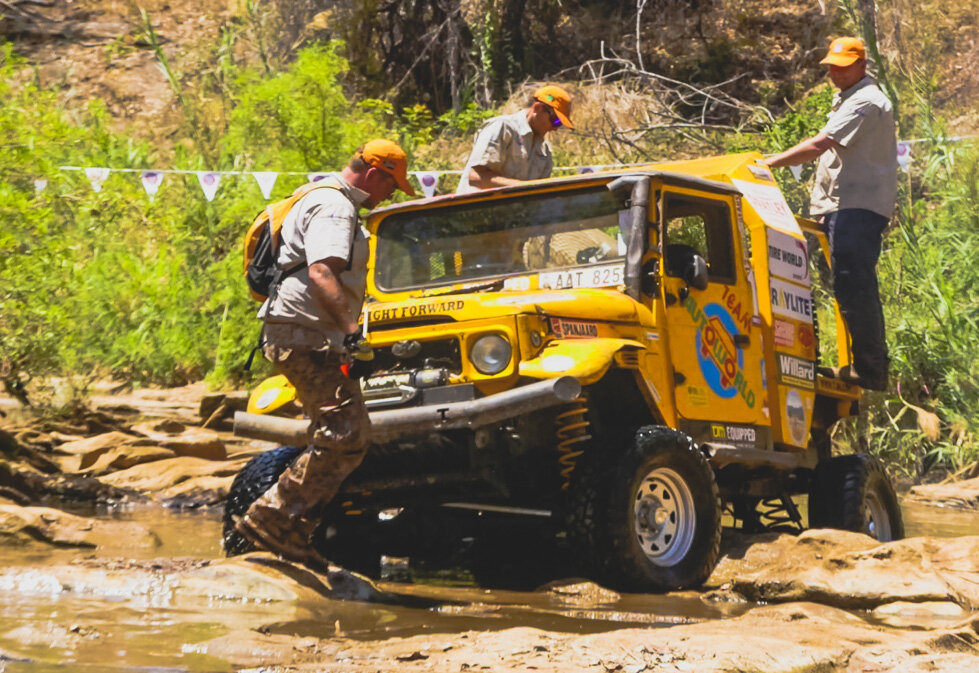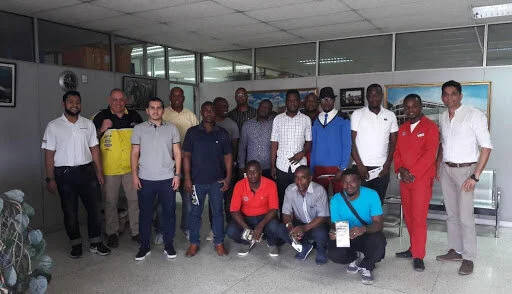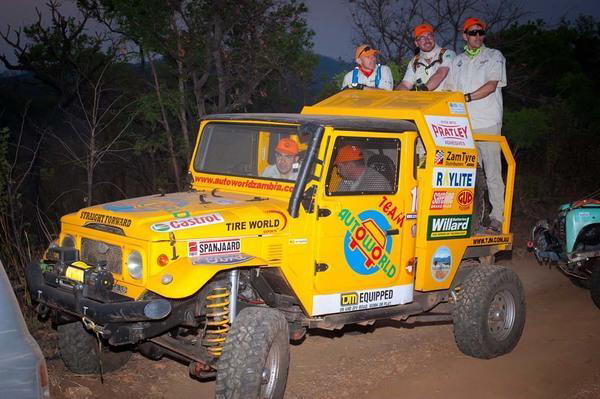Introduction
The setting for the 2019 Fuchs Elephant charge was a stunning mountainous area two hour’s drive to the south east of Lusaka. There is considerable deforestation in the area, which served as a reminder of the true reason why we attend this event each year; to raise money for conservation through education. In fact the organizers of the Elephant charge event chose this site to show all the competitors and spectators the reality of how the Zambian bush is being affected by the rampant charcoal trade.
Although I was excited to be at the Elephant charge again, seeing this sad reality made me realize how vulnerable our forests and wildlife are. It gives me all the more reason to be involved in conservation. Education is so important and the more people are taught to conserve, the better chance we have in saving our beautiful natural resources.
Lots of time and sacrifice go into fund raising by all the teams, and this is very rewarding. People matter and educating people has a very positive impact, not only their own lives, but also on their communities and their environment.
Whenever I have been approached about the Elephant charge, many people tend to be more interested in all the fun that goes on during the race. But I’d like us all to think for a moment about the conservation goal of the event and how this is being achieved.
How are the Elephant charge funds spent each year?
I believe good stewardship gives sponsors the assurance and confidence to continue being supportive of this great cause.
Over the last 12 years the Elephant charge has raised over USD1,000,000 which has all been spent on conservation. This is a great success thanks to the organizing committee and all the participants of the race over the years.
Thanks to all of the Autoworld Sponsors, the “A” Team has been able to raise a total of USD174,786 over 10 years making us one of the top teams for raising funds for conservation in Zambia!
I’d like to give four examples of how part of this $1,000,000 has been spent; most importantly how thousands of people are impacted by these funds. (For a comprehensive list of all the beneficiaries, see here: https://www.elephantcharge.org/beneficiaries,http://conservationzambia.org/)
Wildlife & Environmental Conservation Society of Zambia
Wildlife & Environmental Conservation Society of Zambia has been provided 8 grants by the Elephant Charge totalling $217,935:
$38,900 - Fuchs Elephant Charge 2018
$32,842 - Fuchs Elephant Charge 2017
$18,790 - K2 & Lendor Burton Elephant Charge 2016 - to support 1,001 Chongololo clubs and 40,040 members*
$16,250 - K2 & Mwala Crushing Elephant Charge 2015 - to support 944 Chongololo clubs and 37,760 members*
$20,892 - K2 & Mwala Crushing Elephant Charge 2014 - to support 867 Chongololo clubs and 26,010 members*
$48,435 - Elephant Charge 2013 - to support 500 Chongololo clubs and 17,500 members*
$16,603 - Elephant Charge 2012 - to support 468 Chongololo clubs and 16,380 members*
$25,223 - Elephant Charge 2011 - to support 249 Chongololo clubs and 9,960 members*
*members are young school-going children
2. Chipembele Wildlife Education Trust
Chipembele Wildlife Education Trust teaches Zambian children the value of wildlife and their environment so they may be conserved for present and future generations.
Chipembele Wildlife Education Trust has used funds provided by the Elephant Charge to support the Chipembele Conservation Education Center, outreach programs, the Chipembele Rangers Scheme and Chipembele Conservation Scholarships.
Chipembele Wildlife Education Trust has been provided 8 grants by the Elephant Charge totalling $53,829:
3. Children in the Wilderness
Children in the Wilderness is an environmental and life skills educational programme that focuses on the next generation of rural decision makers. It is one of the few programmes aimed at bridging the divide that exists between communities and wildlife.
It has used funds provided by the Elephant Charge to support the annual Children in the Wilderness camps where children from local communities spend a week staying in a safari lodge and participate in game drives, nature walks and wildlife activities, attend interactive workshops on conservation, environmental management, the geography and geology of the area, culture, HIV/AIDS, nutrition classes and learn the importance of wilderness areas to their communities and their country. Children learn the life skills and values necessary to one day become great leaders and great conservationists.
Children in the Wilderness has been provided 7 grants by the Elephant Charge totalling $43,535:
$2,667 - K2 & Mwala Crushing Elephant Charge 2015
$4,414 - K2 & Mwala Crushing Elephant Charge 2014
$11,736 - Elephant Charge 2013
$7,300 - Elephant Charge 2012
$6,690 - Elephant Charge 2011
$8,729 - Elephant Charge 2009
$2,000 - Elephant Charge 2008
4. Conservation South Luangwa
Conservation South Luangwais a non-profit. community based organization, committed to the conservation of the local wildlife and natural resources of the South Luangwa National Park and surrounding GMAs.
Conservation South Luangwa has used funds provided by the Elephant Charge to support their annual Fun Run Day which promotes conservation in the communities surrounding the South Luangwa National Park and has over 3,000 people attend each year. Funds are also used to support snare removal and anti-poaching patrols.
Conservation South Luangwa has been provided 9 grants by the Elephant Charge totalling $84,067:
$8,644 - Fuchs Elephant Charge 2018
$7,116 - Fuchs Elephant Charge 2017
$4,705 - K2 & Lendor Burton Elephant Charge 2016
$5,417 - K2 & Mwala Crushing Elephant Charge 2015
$6,179 - K2 & Mwala Crushing Elephant Charge 2014
$15,835 - Elephant Charge 2013
$9,733 - Elephant Charge 2012
$10,293 - Elephant Charge 2011
•$16,146 - Elephant Charge 2010




